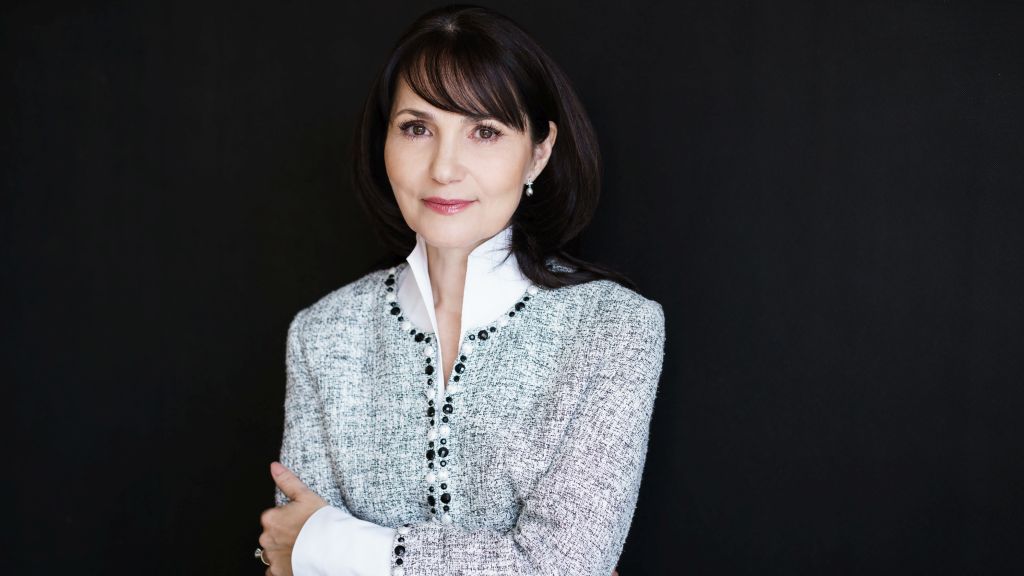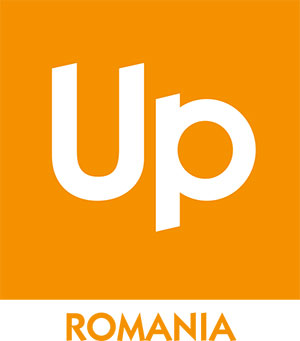“With more younger people entering the workforce, and more remote workers, in 2022, companies will have to address new extra benefits and processes to make work easier for employees.”
Q: 2021 is about to end soon - will you reach your personal and business objectives in 2021, and what are the main drivers?
Elena Pap: For Up Romania, 2021 was mainly about focusing our efforts on digitalization: digitalizing meal tickets, launching the Up MultiBeneficii platform, strengthening the mobile apps and the Up Achiziții platform for SME’s. On a personal level, my goal was to keep the team together and maintain our employees focused and motivated.
Q: With more and more companies switching to non-cash payments exclusively, what is Up Romania’s strategy to address this opportunity?
Elena Pap: Digital meal tickets were a request from many employees, and we also developed new solutions, such as contactless and online payments. We also have an on-going partnership with Romanian fintech PayByFace, allowing our clients to make payments with biometric facial recognition by having their face scanned in affiliated stores and restaurants. For 2022, our plans include to further develop our two platforms, Up MultiBeneficii and Up Achiziții, as they sustain companies using digital tools for improved time-efficiency.
Q: More and more people started using their mobile phones for payments. How can they benefit from Up Romania’s offerings?
Elena Pap: Up Dejun, Up Cadou and Up Vacanța are the types of cards that Up Romania provides its users, and they can pay directly by smartphone if they have an Android operating system, and NFC option and fingerprint or facial recognition active. For Apple users, we activated Apple Pay, allowing cards to be added in the wallet, so they can keep paying easily.
Q: How does Up Romania handle Digital Transformation of sales, marketing and operations within the company?
Elena Pap: During the Covid-19 pandemic, the digitization processes were accelerated, so that work from home was carried out in an optimal way, saving time and resources. An example is that within the sales team, when a new contract is made for Up Achiziții it is done entirely online. Even if we put into place all the necessary digital instrument so that our teams could work efficiently, we encouraged our employees to return to the office and interact with each other in a safely manner. We consider that teamwork boosts creativity, as well as it develops our collaborative and social skills.
Q: A survey of 6,000 workers by the recruitment firm Randstad UK found that 69% of them were feeling confident about moving to a new role in the next few months, with 24% planning a change within three to six months. How should employers use Up MultiBeneficii platform to make a difference in retaining their top talents?
Elena Pap: Coming out of the pandemic, a growing number of companies have announced that they plan to “embrace flexibility,” particularly in a hybrid working model. When employees are permitted to work flexibly, they automatically experience more harmony in their work-life balance. A first step to persuade employees to stay is to put up looser and more varied policies such as work from home, flex time, paid leave flexibility, and even flexible benefits. At Up Romania, we strongly believe that in 5 years, 90% of the extra-salary benefits of large companies will be chosen directly by employees. While using Up MultiBeneficii platform, Romanian employees can select the incentive that suits them from many available services such as: meal vouchers, gift vouchers, cultural vouchers, holiday vouchers, medical subscriptions, private pensions and even subscriptions to sports-clubs. They can also postpone the use to obtain greater benefits.
Q: Why should purchase managers use Up Achiziții platform to centrally manage all their B2B purchases?
Elena Pap: Up Achiziții is an advantageous financial instrument and it is the place where Romanian entrepreneurs can easily purchase the services and products necessary for the proper functioning of businesses, at reduced prices. For example, medical services can already be purchased reduced by 25%, while courier services have a 30% discount. The platform is similar to an e-shop, and the purchase managers can select various services or products, from water, office paper or gas. The entire process is digital, including signing the contract is paperless.
Q: What are top 5 opportunities you see in 2022 for companies in Romania?
Elena Pap: Eliminating or reducing the environmental costs of doing business will be one of the main goals companies will focus on. Sustainability is linked to resilience, since resilience means being able to adapt and survive for the long term. Any business that ignores sustainability is unlikely to do well in this age of conscious consumption.
Romanian companies have easily adapted to the digitalization trend. However, not all of the consumers have adopted digital behaviours. So, it’s up to companies to guide Romanians on learning the necessary digital literacy skills.
Flexibility and work from home/hybrid are trends that have already become the new reality. With more younger people entering the workforce, and more remote workers, in 2022, companies will have to address new extra benefits and processes to make work easier for employees. However, we should be aware that automation has already affected most industries. So, business leaders must prepare their organizations – and their people – for the changing nature of work.
The pandemic has increased people trust in brands and their ability to help. Consumers have become more connected to the brands they use, and it has given rise to authenticity as a business trend in its own right. I consider that in 2022 Romanian companies will display more human qualities like honesty, reliability, empathy, compassion, and maybe even a bit of vulnerability.
Q: How do you see the Romanian market evolution in 2022?
Elena Pap: Romanian market will evolve in the rhythm of its consumers. It will become more flexible and digital. However, organizations should take into consideration a wide range of consumers – from seniors to Gen Zs. I consider that the market will evolve according to the needs of each public, and companies should be present where its consumers are, whether its online or offline.
You can also consult the interview in the document below:


































